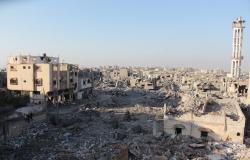One year after its publication, the novel “Chiodo della terra”, Roberto Zito’s fiction debut, received first prize in the “Belpasso tra le riga” competition, within the “Parola per parole” literary festival. The competition, divided into various categories including painting and poetry in Italian and dialect, saw the participation of numerous candidate works, including those of young aspiring writers and artists from schools, while for the narrative and non-fiction category the prize is went to “Chiodo della terra”, published by the Scatole Parlanti publishing house, and the special mention to Francesca Saraceno’s essay “The burial of Saint Lucia by Caravaggio”. The author, in thanking the organizers of this first edition of the Festival, primarily the journalist Katya Maugeri together with Antonino Girgenti, Tony Carciotto and Gianni De Luca, wanted to remember how the plot of the novel creates a connection with the history of Belpasso and with its inhabitants, who since 1669 have had to face the devastating eruptions of Etna, each time strengthening their ability to emerge from the ashes and rebuild their community.
Just as happens in “Chiodo della terra”, which tells of an eruption of apocalyptic dimensions, this time set in 2019, which destroys the summit of Etna with a colossal explosion, capable of shattering the eastern side of the volcano. During the eruption, six characters involved in the catastrophe will try to survive, and in doing so they will put their shattered lives back in order, between remorse and regrets, secrets and lies, grudges and conflicts with their family and their land. In short, the novel, after an initial presentation at Viagrande Studios, managed through word of mouth to arouse interest far beyond expectations, arriving last year among the finalist novels in the “Ju Buk Opera Prima” competition in Scanno, Abruzzo, chaired by author Valeria Gargiullo.
“It was there that I realized how powerful this story was, so much so that it went beyond the boundaries of my circle, because it recalls our most hidden nightmares, the fear of not being able to face the forces of nature, of losing control in the face of to the inevitable. And on the other hand, it is also a very personal story, full of all the generational conflicts that are increasingly heated today, poised between repression and rebellion, between past and future, between parents and children. In the middle there is a present of desolation, flames and scorched earth, which recalls not only the scenarios of the pandemic but also the climatic upheavals that are disturbing the balance of the world, and of our island in particular”.
After the “Ju Buk” prize and the victory at the Belpasso Festival, the novel was also included by the Cuneo Civic Library among the twenty-five candidates for the “City of Cuneo Prize for the First Novel”, it is currently being evaluated by of readers, and obtained the Il Lavatoio jury prize at the International Poetry and Fiction Competition Città di Cefalù, where it will be awarded in June. “Usually those who work in publishing say that, once a novel is published, they only have a year left to live, even less. There are too many publications and too few readers. But in my case I can say that things are going differently and I have to thank all the readers who appreciated the novel, were excited by discovering this story and supported it, putting their trust in an unknown writer, without a big publishing brand behind him. . It is proof that it takes a very powerful story to reach people’s hearts, like the stories I have always loved since I was a child, and I can say that I am proud of the story I wrote and the message I wanted to send with this book.”
Tags: Nail Earth Roberto Zito wins prize Word Word festival






